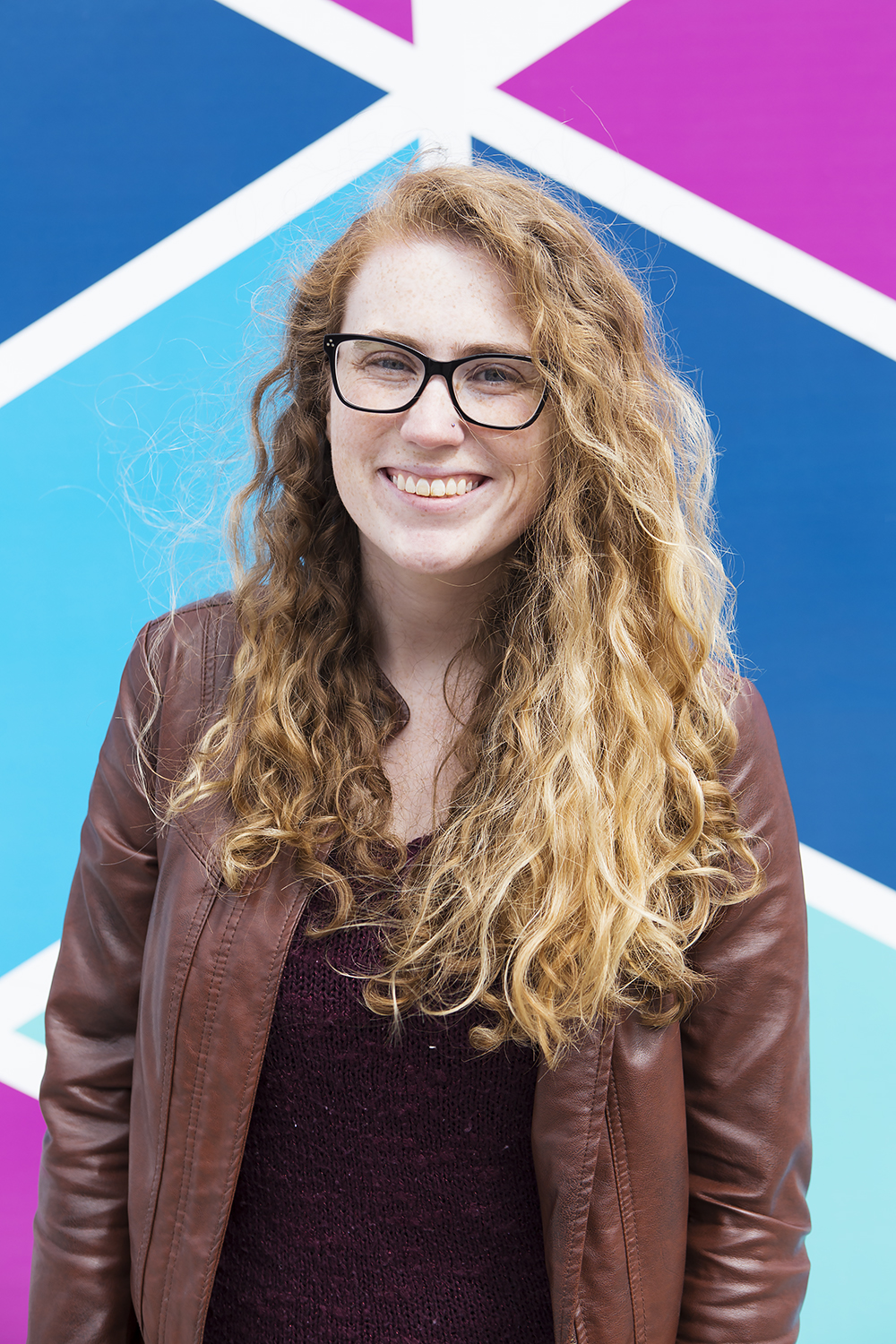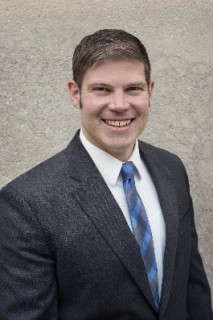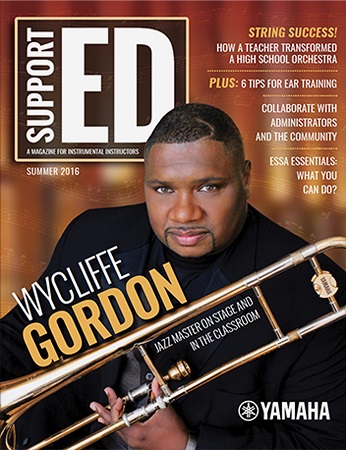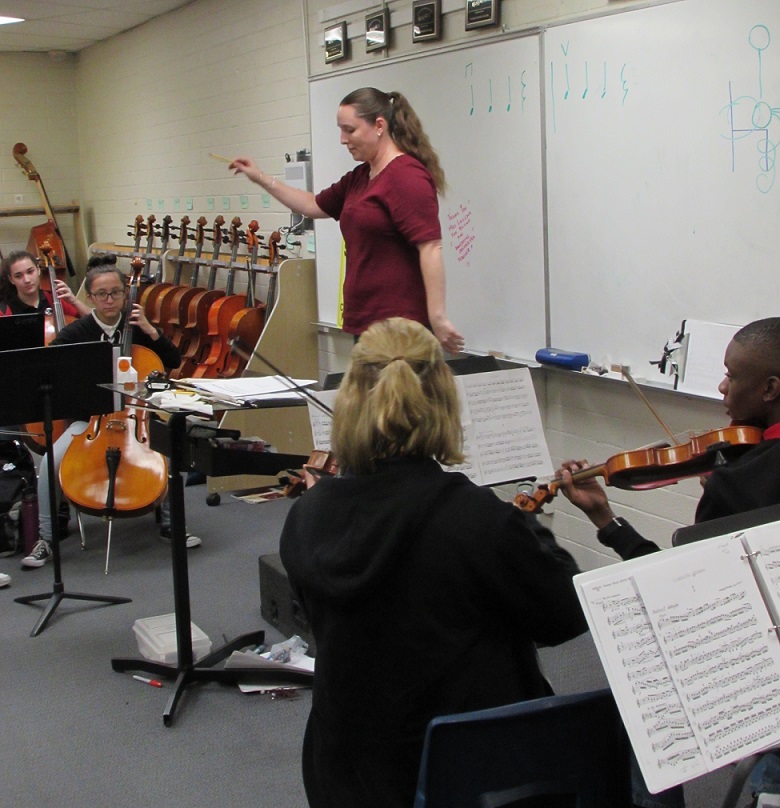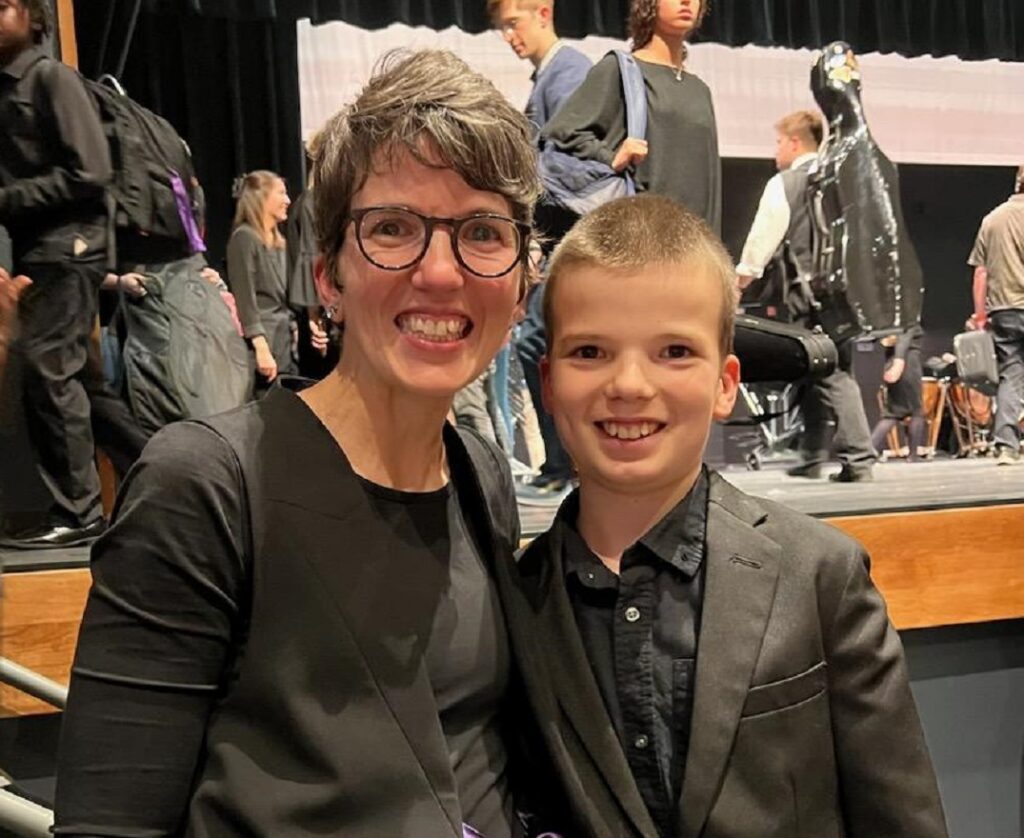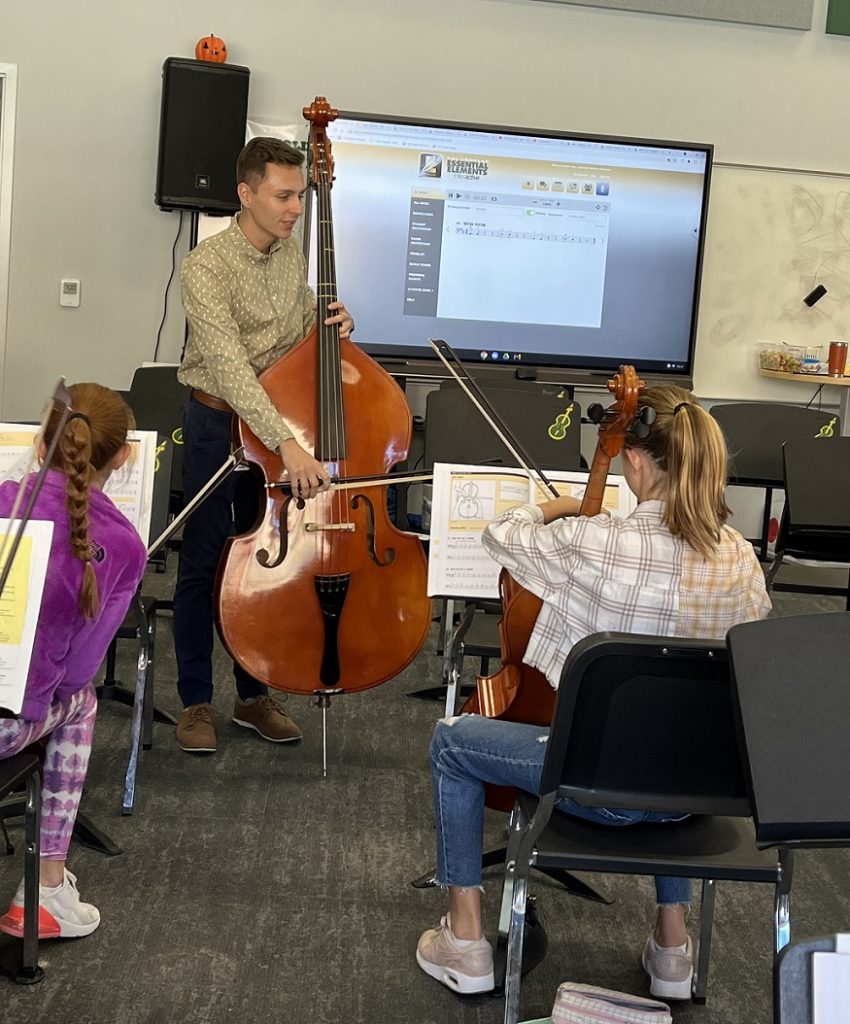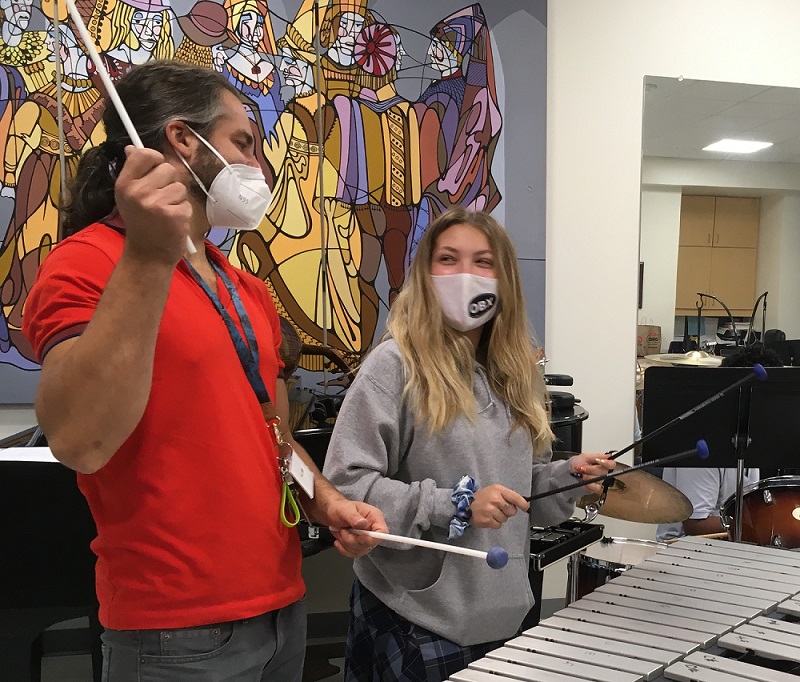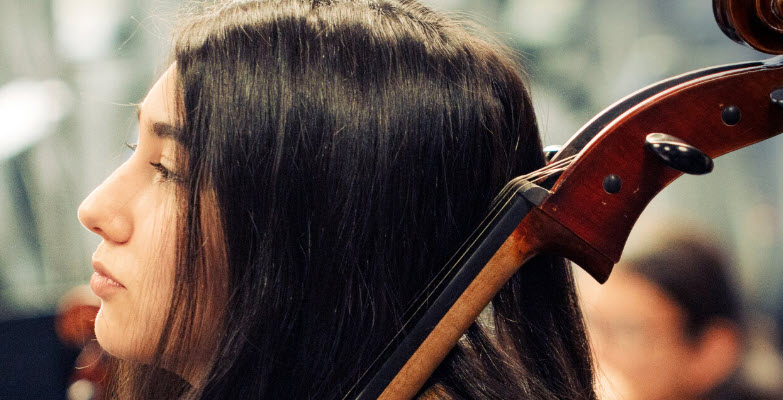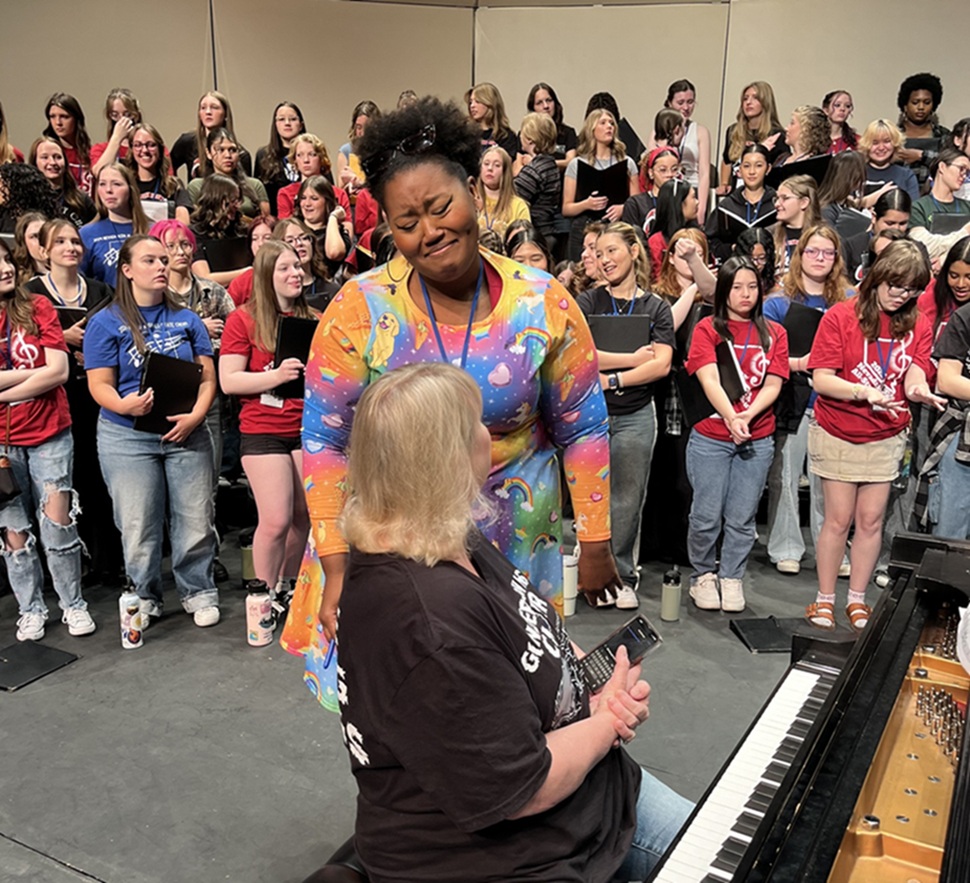Tagged Under:
Case Study: How to Grow a High School Orchestra Program
The success of McQueen High School’s orchestra, which performs around the world, is thanks in large part to the director’s vision.
The halls of Robert McQueen High School in Reno, Nevada, are buzzing with excitement and anticipation for the summer. It’s not the typical end-of-the-school-year eagerness that has these teenagers bouncing in their seats.
It’s a 16-day tour of Europe, featuring the McQueen High School Orchestra. In July 2018, orchestra students will embark on their second European tour, where they will perform in London, Paris, Switzerland, Austria and Germany. This tour comes on the heels of their performance last year at the American String Teachers Association (ASTA) National Orchestra Festival in Salt Lake City, in addition to their regular concerts in Reno. Under the leadership of director Kenny Baker, the McQueen High School Orchestra has become a major cultural component in Reno.
When Baker arrived at McQueen right after receiving his bachelor’s degree in music education from the University of Nebraska-Lincoln in 2004, the orchestra consisted of 57 students who performed a few concerts in the school gymnasium each year. Since then, Baker has transformed the group into a 136-member orchestra that he is proud to take around the city, country and world.
In the Zone
Upon his arrival at McQueen, Baker instantly realized that there was room for growth. “The orchestra was a third of the size of the band and choir,” he explains. “The band was going to the Fiesta Bowl. The choir was traveling all over. I had this vision that that’s what the orchestra needed to be.”
Baker expanded the orchestra by effectively recruiting and retaining members. Every year, Baker hosts a Zone Concert, where McQueen orchestra members collaborate with students from their feeder elementary and middle schools to put on a giant concert featuring more than 500 participants. This concert introduces elementary and middle school students to the orchestral opportunities available to them at the high school level. In addition to its concert orchestra, McQueen has specialty groups such as the sinfonia, chamber, festival and honor orchestras as well as an electric strings ensemble and a guitar ensemble.
Booster club president Caryn Tijsseling recognizes the Zone Concert’s impact. “Our program gets bigger every year,” she says. “A lot of kids who started at middle school stay in orchestra through their senior year.”
Rehearsal Strategies
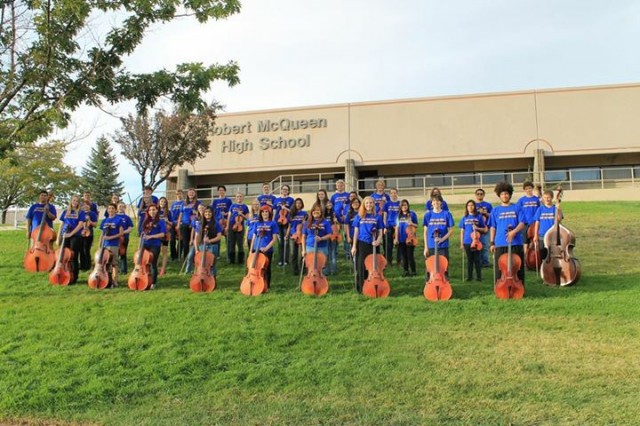 McQueen teacher and orchestra parent Christopher Case cites Baker’s efficiency as a reason he is able to maintain so many members. “The kids aren’t inundated with endless rehearsals and time spent doing something again and again,” he says. “Kenny’s done something that’s difficult in education: increase size but increase quality and commitment at the same time.”
McQueen teacher and orchestra parent Christopher Case cites Baker’s efficiency as a reason he is able to maintain so many members. “The kids aren’t inundated with endless rehearsals and time spent doing something again and again,” he says. “Kenny’s done something that’s difficult in education: increase size but increase quality and commitment at the same time.”
Baker’s rehearsals are devoted to making sure students develop the necessary skills to meet their musical goals. “A typical rehearsal focuses on the process of learning music and improving technique, not the product,” he says. “If a student has skills, the music will take care of itself.” His approach includes breaking down musical components so that students understand them before applying them to music. “I teach students how to dissect a rhythm, so they know how [it] works. I don’t just tell them how it sounds or play it for them.”
Once his students understand the components of rhythm, they are able to figure out the rhythms in their music much more quickly, reports Baker. The same holds true for intonation, shifting and dynamics.
Baker and his students also work well together because of their mutual respect for each other’s time. “They could be anywhere else — with their friends, playing video games … but they choose to be at rehearsal,” he says. “Therefore, I respect their time by moving as quickly as possible.”
In turn, the students give Baker their complete focus and attention. “They want to work; they want to learn,” he says.
Collaborative Effort
Despite Baker’s obvious impact on the success of the orchestra, he is humble in his approach. “It’s not just me,” he says. “It’s the [other] teachers, parents and the administration at our school.”
School administrators and guidance counselors support the orchestra program as well, giving all interested students the means to participate. “Counselors make sure that kids who need to be in orchestra are there,” explains Baker. “Our assistant principal tries to get as many kids into orchestra as she can with her master schedule. She sees the importance of music.”
Even athletic coaches have helped Baker maintain the size of the orchestra by working with students to balance music and sports. “A lot of kids had the misunderstanding that they couldn’t be in music and a sport at the same time,” he says. “It took a lot of working with coaches, so the kids know they can do both. Most of my kids are in at least one sport.”
Baker also works closely with the parent booster club, which plans events, performances and fundraising initiatives. “We have fantastic parent support,” he reports.
Community Influence
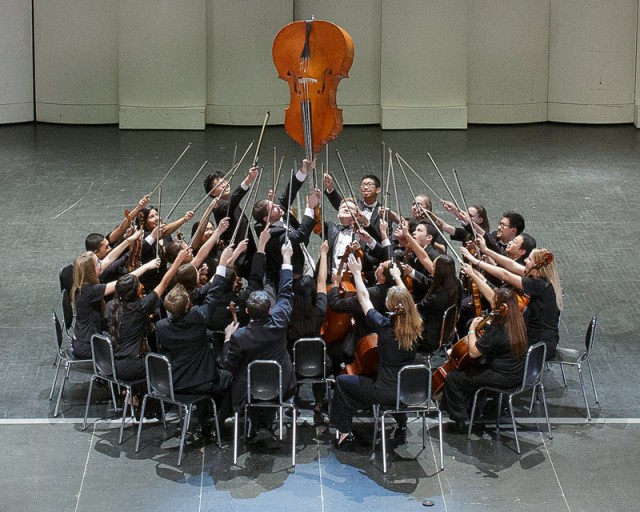 Over the course of Baker’s tenure at McQueen, one of his major goals has been to get the orchestra more community recognition. “People understand marching band,” he explains. “They go to parades, to football games. They understand what a jazz band is. People don’t understand orchestra. That’s a huge hurdle I’ve had to face.”
Over the course of Baker’s tenure at McQueen, one of his major goals has been to get the orchestra more community recognition. “People understand marching band,” he explains. “They go to parades, to football games. They understand what a jazz band is. People don’t understand orchestra. That’s a huge hurdle I’ve had to face.”
Due to Baker’s collaborative efforts with music parents, the McQueen orchestra has been able to gain prominence. “The boosters get them into places where they can sound their best and let the community see,” Tijsseling says.
For example, the community can experience the orchestra at its yearly Fall Fusion Concert at the Pioneer Center for the Performing Arts, home to the Reno Philharmonic. This concert showcases a variety of genres, from traditional concert literature, like Vivaldi, to more eclectic styles of music, like fiddle tunes and string renditions of pop songs.
These performances at the Pioneer Center started three years ago when the orchestra needed a new stage to accommodate its growing size. The school gymnasium, while large enough to host the much more laid-back Zone Concert, doesn’t have the proper acoustics for a formal concert like Fall Fusion. “The kids can’t do any nuances in the music,” Baker says. “The dynamics, the expressiveness … you lose that in the gym.”
For Fall Fusion, Baker wanted a space where his students could put on a more professional performance, which the Pioneer Center offered, with its large stage and in-house sound and lighting technicians.
Securing the Pioneer Center as a performance venue was not difficult. “We were welcomed with open arms by their executive director, Willis Allen, and his entire staff,” Baker reports. “They are absolutely wonderful to work with.”
Reflecting on the positive impact the McQueen orchestra has had on the community, Case says, “Reno has found a way to hold onto orchestra programs in the toughest economic times. We are very blessed to live in a community that has a large music program.”
Lasting Impact
Though teachers, administrators, parents and the community at large have all worked together to ensure a successful orchestra, the program could never succeed without its dedicated student musicians.
“We do a lot because the kids can do it!” Baker says. The McQueen orchestra now performs about once a month, totaling around nine performances a year. Many students continue to perform beyond high school. “I have students who go on to be performance majors, education majors,” he reports.
Students from McQueen have also played for the Reno Philharmonic and the Reno Pops. But even for students who don’t pursue music professionally, the orchestra still leaves a lasting impact. “[The kids] have an appreciation of music and art and what they can contribute to the culture of our city,” says Tijsseling.
Case knows that this program helps students develop a strong work ethic. “My daughter practices all summer, all Christmas break, and it’s not because we told her to,” he says. “To see the product of all that work on stage warms my heart.”
Tijsseling has seen the orchestra encourage teamwork and camaraderie. “They’re like a family, really,” she says. “They pull together to make amazing things happen.”
Pulling together is a common theme for all involved in the McQueen High School Orchestra. Due to the initiative of Kenny Baker and the hard work of the students, parents, teachers and administration as well as the support of the community, the McQueen orchestra accomplishes a major goal of all music ensembles — to bring different types of people together and create something truly beautiful.
Photos © 2016 Skye Snyder, Caryn Tijsseling, M.D. Welch, All rights reserved
This article originally appeared in the Summer 2016 issue of Yamaha SupportED. To see more back issues, find out about Yamaha resources for music educators, or sign up to be notified when the next issue is available, click here.









